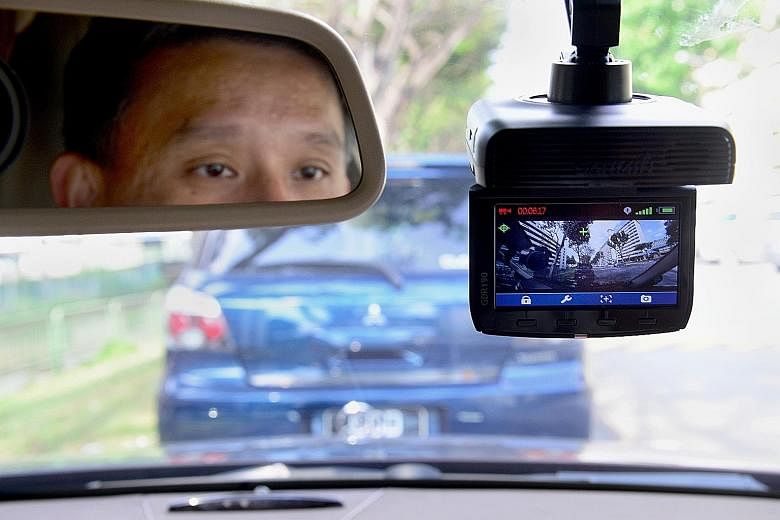More people are reporting bad behaviour on the roads to the Traffic Police (TP), and the number of summonses related to public feedback has increased 1.5 times over the past five years.
In response to queries from The Straits Times, the TP revealed that they issued 2,500 summonses last year as a result of public feedback.
In 2014, there were 1,700 such summonses.
Between 2015 and 2018, the number of summonses issued by the TP rose from 152,700 to 181,000.
In all, the TP received a total of 18,500 feedback submissions from the public on irresponsible driving - more than double the number five years ago, at 6,900.
Most of this feedback was received via the Singapore Police Force's online portal, which was launched in 2014, and was occasionally accompanied by videos or photos, according to a spokesman for the TP.
Common transgressions were speeding, crossing when the light is red and dangerous or reckless driving, he added.
"TP welcome public feedback on traffic offences, which contribute towards making our roads safer for all users," said the spokesman.
In recent years, several road safety interest groups have sprung up on social media, using videos captured by vehicle dashboard cameras to call out irresponsible motorists, pedestrians and other road users.
-
2,500
-
Number of summonses issued by the Traffic Police last year as a result of public feedback.
One such group is Roads.sg, which has a Facebook following of nearly 220,000. Founder Aloysius Fong, 62, said the site receives up to 10 videos of unsafe driving behaviour daily, with about half of them related to beating the red light.
Other communities include Beh Chia Lor with 131,000 followers, Singapore Reckless Drivers with more than 130,000, and SG Road Vigilante with about 41,000.
If the video contains irresponsible driving behaviour, Mr Fong would usually forward it to the TP via the online portal on behalf of contributors.
While more people are using dashcam videos to call out bad behaviour on the roads, this may not necessarily mean the problem is getting worse, said transport analyst Gopinath Menon.
"This was probably already happening before, but they were never captured on video. It's possible that today we are more aware because of social media," said the senior research fellow at the Nanyang Technological University.
"If people are aware that they are being watched, the hope is that they will be more careful."
To curb irresponsible driving, the authorities may soon raise penalties for dangerous and careless driving, as well as road traffic offences, such as illegal U-turns.
For example, those convicted of dangerous driving could face a maximum of eight years in jail for the first offence, up from the current five years.
To nip unsafe driving behaviour in the bud, composition fines for road traffic offences will also be raised.
For beating the red light, fines will double from the current $200 to $230, to between $400 and $500.
While motorists and experts said they welcome more serious consequences for drivers who cause injury or death in traffic accidents, some were doubtful that increasing fines alone for road traffic offences would result in safer roads.
Driving instructor Gordon Thia, 63, who has been in the industry for more than 40 years, said the number of demerit points issued for traffic offences should also increase alongside composition fines.
Besides increasing penalties, Mr Menon said there are other ways to improve road safety.
"Enforcement is one way, but it is not possible to do 100 per cent enforcement. Education and road infrastructure must all work together," he added.
For example, general speed limits could be lowered to 40kmh from the current 50kmh, he suggested.
Some motorists also suggested that the authorities should take advantage of the videos of irresponsible motorists posted on social media to educate the public.
Said Road.sg's Mr Fong, who is a businessman: "I'm just doing this as an activist, but it would be good if TP can be more active on social media to state their stand on what happens in these videos, especially those that go viral."


